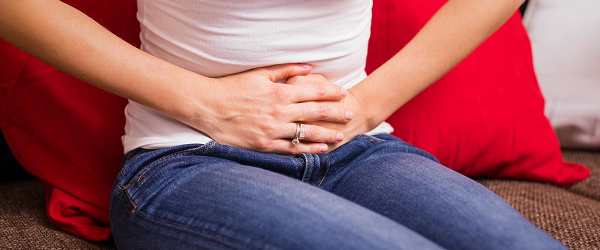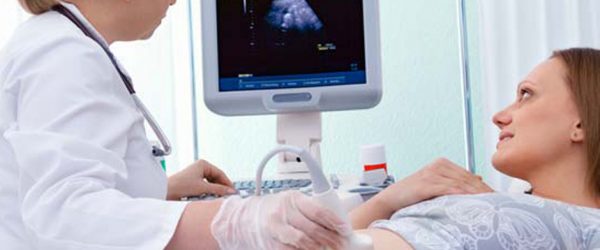Cramping After Miscarriage: How Long Will Stomach Cramps Last?

Last updated on July 26th, 2018 at 05:28 pm
Question: How long will cramping after miscarriage last? Is severe cramping days after miscarriage normal?
One scary sign women try to steer clear of when pregnant is cramping in their lower abdomen.
If you are pregnant and encounter stubborn abdominal cramps, it might not exactly be due to a miscarriage. However, the risks that you’re having a miscarriage may be much higher if you are bleeding heavily from your vagina.
A Miscarriage is the abrupt death of the embryo (formed after fertilization of sperm and ovum) during pregnancy. And if you have a miscarriage, stomach cramps in your lower abdomen and back pain are not unusual.
Bleeding and abdominal cramps are signs that you will experience after a miscarriage. Another symptom is sudden disappearance of the “feeling of being pregnant.”
So, if you are worried about Belly cramps, this article explains whats cramping pain after miscarriage feels like, how long pain should last, and when you ought to see a doctor.
Is bleeding and abdominal cramping after miscarriage normal?
In the next few days and weeks after your doctor confirms you are having a miscarriage, there are different symptoms you will experience.
Most times, women experience a sense of guilt and show concern of being the reason for their miscarriage. Some women get frustrated for a long time and may require additional social therapies and support.
If you lost your baby in the first three months of pregnancy, it’s extremely unlikely that you are the reason behind the miscarriage. Generally, pregnancy loss (miscarriage) in the first trimester occurs as a result of your baby’s defective chromosomes, and the reality is, it’s beyond your control to prevent a miscarriage from happening.
Apart from grief and depression, mild or severe cramps after miscarriage are common. This usually starts after vaginal bleeding; If you are cramping after a miscarriage, its nothing abnormal. Cramps occur as your womb contracts and try to push out fetal parts out of your womb.
Generally, is okay if you are craping one week after miscarriage. However, if after two weeks and you still experience severe stomach cramps and bleeding, it’s important you see your doctor right away.
Finally, apart from cramping after miscarriage, you will see light or heavy vaginal bleeding after a miscarriage.
It’s entirely normal if you are bleeding light or heavy in the first two weeks of a miscarriage. But if it continues, something’s wrong, see your doctor.
Cramping after a threatened miscarriage
When pregnant, if you notice an abnormal light bleeding with or without stomach cramps, it means there is a threat to your pregnancy.
Threatened abortion, as the name suggests, means something may be wrong, and it’s important to get examined by your medical professional. If your cervix after doctor’s exam is closed, chances are you won’t have a miscarriage.
However, if bleeding continues with cramping, its possible you will have a miscarriage. The truth is, cramping after threatened miscarriage is not a good sign. If bleeding gets heavier too and you see thick blood clots and fetal parts coming out, talk to your doctor immediately.
Cramping after inevitable abortion
An inevitable abortion means your baby will likely be expelled out from your womb. This occurs after your doctor finds an open uterine cervix after examination.
It’s normal that you will experience heavy bleeding and cramping after an inevitable miscarriage as your womb spontaneously tries to expel its content.
If your womb is completely cleared and baby expelled, bleeding and cramping will subside, though, light spotting is typical for a few days.
Cramping after an Incomplete miscarriage
If you are cramping after an incomplete miscarriage, it’s beneficial to consult your doctor in order to minimize extreme loss of blood.
An incomplete miscarriage means that part of your baby is still in your womb, and this forces your womb to contract intermittently.
Provided your womb is not completely cleared, you will have long-lasting cramps as you womb tries to contracts and clean it up.
If you are cramping after miscarriage for weeks or months, then its a sign of incomplete miscarriage.
What to do if you are cramping after miscarriage
Abdominal cramps and back pain are not uncommon after a miscarriage. In fact, they occur as a protective way to prevent excessive blood loss, and also, infections.
As your womb contracts and relaxes, it causes you to feel pain in your abdomen, and also, empties uterine content.
If you are experiencing mild cramps after miscarriage, its likely nothing serious. However, severe stomach cramps after miscarriage that last for more than 2 – 3 weeks indicate that parts of your “dead baby” are still within your womb.
It’s important to inform your doctor for examination and routing test to be carried out. Some of those tests carried out are
1. Abdominal ultrasound
During your clinic visit, your doctor will request you take another ultrasound to confirm if your baby is alive or not. Also, if there are retained products of conception, it will be visualized through an ultrasound.
Don’t panic if a probe is placed on your abdomen or inside your vagina; it’s a way the test is conducted.
2. HCG monitoring
Another test carried out by your doctor is checking the level of human chorionic gonadotropin level over a few days. HCG hormone is detected in a pregnant woman blood and urine immediately after implantation.
As days and weeks pass, this hormone naturally continues to rise. In fact, after every 48 – 72 hours, HCG hormone levels will double.
If you are experiencing a miscarriage, your doctor monitors if your HCG levels are falling.
Cramps after miscarriage how long does it last?
One common question women ask after a miscarriage is “when does cramping stop after miscarriage?”
If you are cramping days after miscarriage, it’s not abnormal. Also, if you are cramping one week after miscarriage, it’s still not abnormal.
In fact, you may experience on and off cramps and bleeding that stops and then start again. As your womb cleans up its content, cramping and bleeding will subside.
However, it’s not normal that you will have severe period like cramps after miscarriage for more than two weeks. See your doctor immediately.
How to stop cramping and back pain after miscarriage
If you are bleeding, cramping or experience lower back pains after miscarriage, it’s important to see your doctor to be sure if any fetal parts are still within your womb. If your womb has been completely cleared, cramps and back pain will stop in the next few days.
Alternatively, if there are fetal tissues, your doctor will counsel you on the need for evacuation. Evacuation can be carried out through a suction tubing or the traditional D & C (dilation and curettage).
After the complete evacuation of your womb, cramps, bleeding and back pain usually subsides and then stop.

Oladunni Bamgboye
Great.Got the needed info. Thanks.